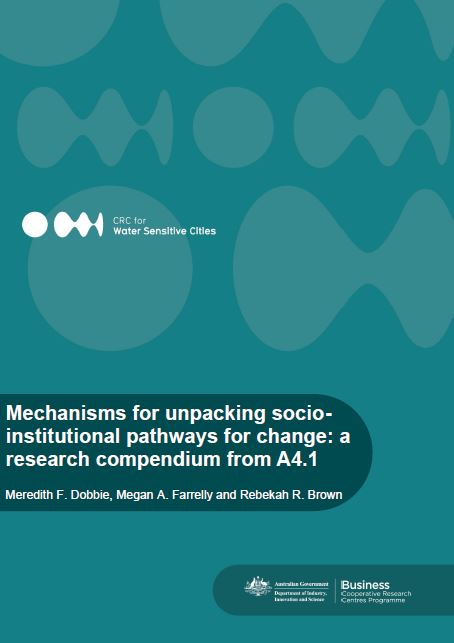Mechanisms for unpacking socio-institutional pathways for change: a research compendium from A4.1
An important new publication outlines the collective insights from a suite of research projects exploring how to advance the institutional and practical mainstreaming of sustainable urban stormwater water systems in Australia.
Mechanisms for unpacking socio-institutional pathways for change: a research compendium from A4.1 brings together a rich body of work from across three key sub-projects: institutional capacity, community receptivity, and co-design innovation. It demonstrates how the resulting insights and approaches can be used to advance urban water governance practices, and points to how and where they can be positioned along the transition dynamics framework. Example findings include the adaptive governance of urban water systems (including decentralised systems), water practitioners’ receptivity to alternative urban water systems (including sustainable stormwater systems), and community receptivity to raingardens.
The report lays out suggestions for which outcomes – including findings for sector, organisation, or personal scales – can be applied to three purposes: benchmarking the transition phase of a city or organisation; setting targets; and developing strategies to achieve targets.
Find the report here.
